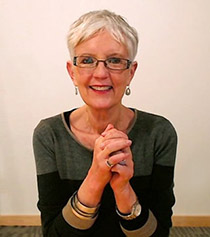The Neurobiology of Trauma – What’s Going On In the Brain When Someone Experiences Trauma?
 |
with Bessel van der Kolk, MD;
|
 |
with Bessel van der Kolk, MD; Pat Ogden, PhD; Ruth Lanius, MD; PhD Dan Siegel, MD; and Ruth Buczynski, PhD
Sign up for a Gold Subscription

This is a learning community for practitioners. We can’t wait to hear what you’re going to use with your clients
But please do NOT:
- seek advice for personal problems
- ask for referrals
- post links or advertise a product
- post about technical problems
Im going to use this information to cater to the needs of the clients I serve who have been zoning out. This information gave me great insight and I have more knowledge to pull from when preparing for therapy session. Excellent. This information was right on time and I am elated that I logged in. The power of mindfulness in inflammation is powerful in itself and game changing for the Black/ African American community; with whom are plagued with illnesses due to years of complex trauma and being predisposed through epigenetics for heart dis-ease, high blood pressure and many other inflammatory dis-eases. As a Black Clinician, I am absorbing this teaching to use with my clientele. EXCELLENT, EXCELLENT teaching!!!
I very much appreciate that you mentioned that the triune brain model isn’t an accurate picture of the way the brain works. I know that you feel that it’s a “helpful” model for working with clients, but I would contend that it’s simply a common idea that isn’t actually helpful. I do realize that many of your speakers have books written and are experts basing their work on this triune brain model, so they would have to have the humility to change their approach. I believe that by working with how the brain really works, we can help clients and ourselves so much more. The work of Lisa Feldman Barrett and others illustrates how the brain actually works and can give a lot of insight into our emotions and behaviors. Mindfulness practice seen through the lens of understanding that emotions are constructed predictively by the brain, allows us to see things as they really are.
As always, thank you!
Two comments about original traumas:
One other symptom of dread fear is an inability to speak. Right, executive function!
Two is the physical and epigenetic -inflammatory disease that Dan Seigel speaks of here..
Specifically, I think it happens due to physical brain damage -the breaking
into the blood-brain barrier and then effecting in a cascade of all manner
of diseases in the lymphatic system and the spinal column.
Threat the site of inflammation.
Healing the breach in the blood-brain barrier repairs the mind… does it perhaps work both ways?
Treat not threat.
I am watching this with great appreciation. You are doing work of inestimable value by sharing this knowledge and making it accessible for professionals with less financial space. Thanks so much.
I will use mindfulness even more !
Although I have known about the helpfulness of mindfulness, I learned more about its power and role in the prevention of inflammation and will definitely be incorporating this knowledge into my work
Really appreciate the how comprehensive yet concise this segment was, incorporating theory with application.
Thank you so much for providing the broadcasts for free! As a mental health counseling student in my last semester, I do not feel adequately trained to treat trauma in my clients, but I also do not have the financial resources to pay for any formal training. Not to mention, the continuing education credits typically included aren’t yet relevant to me at this point in my career anyway. I appreciate the opportunity to learn about this area of therapy from the best as I begin my career. Once I am licensed, I will come back for a membership!
A really quite complete explanation of the brain’s working within trauma. Very hopeful. I thank you so much,
Thank you. What an enlightening and stimulating session for me.. both as a trauma sufferer and a practitioner. Will be actioning many if your topics right now in my next session . Wigh kind regards.. JPBoland
I’m not practicing but as a survivor so much made sense, especially the physical health impact. Parts brought tears to my eyes and stirred the pot which is ok, as I am not an avoider. In a nutshell my trauma begain at age 2 or 3 continued steadily til the age of 34 when I escaped human trafficking and now consult int he field. Much surfaced when i became a mom at 42. What Id hope for as ins seeking advice is, is it possible to reverse some of the physical elements, apparently Im told by professionals that i am a medical mystery, I’m not really all that mysterious and talk openly about my life (tho not in detail) I wrote a one woman show that has made my experience helpful to others to at least it wasnt in vein and as a result of an amazing nurse who came to my show and later when i was admitted told me he then wrote a proposal to have mental health support in the emerge at st Joes hospital here in hamilton. My state of mind is relatively good but the impact physically well thats another story. thank you
sincerely,
Robin Zee
Thank you so much for this opportunity to learn more about trauma. I’m in life change to a therapeutic professional but at the moment I cant afford the value aldow very acceptable. Hope next time I’ll be able to contribute to your work.
Excellent information, I’ll use this information to help me future clients to get a better lifestyle and quality of life, riddle of unconsciously
developmentally trauma or wounds and also from vivencial trauma.
Congrats to your work,
This was BRILLIANT, thank you


I have read about this the last 20 years, it was nice to hear this summary!
I wish this knowledg could come out in the healthcare system, but everything is not trauma or childhoodtrauma.
Helthcare needs to be careing not blaming or misstrusting. That is a very big problem, thats discrimination even. We really need to focus on humanity and trust


